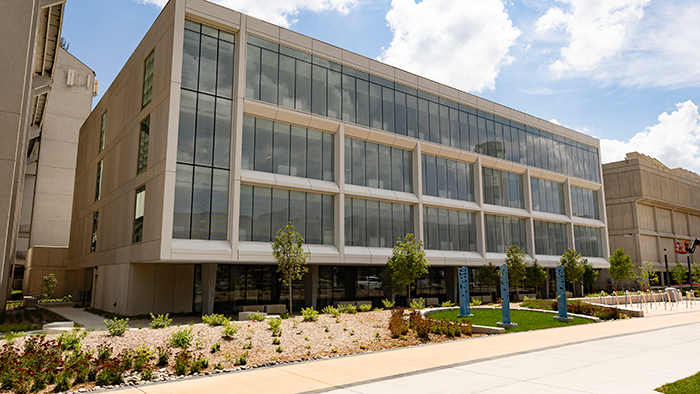
GGP Seminar: Dr. Mohamed Abdelsalam - "The Geological Legacy of Africa"

- Date and time
- 2:30 PM - 3:30 PM, March 24, 2023
- Description
Dr. Abdelsalam's talk will address geological research conducted in Africa, which has led to the advancement of our understanding of original geological concepts, processes, theories and hypotheses. The Journal of African Earth Sciences is in the process of publicizing a Virtual Special Issue (VSI) titled, "The Geological Legacy of Africa." Over 25 topics have been identified in the research conducted. This presentation will address five of the topics in chronological order.
The oldest geological legacy of Africa is represented by the first geological map ever discovered on Earth. The Africa-born concept of "metacratonization;" the synthesis of geological data in early 2000, has shown that cratons can witness destruction through different mechanisms. The talk will move to "Igneous Ring Complexes." Africa has more igneous ring complexes than any other continent on Earth. They are extrusive-hypabyssal igneous complexes that span the Paleproterozic until the Oligocene. Four lithospheric-scale geological mechanisms have been proposed to explain the formation of these igneous rocks, and Africa has contributed two of these mechanisms.
"Snowball Earth" is next where it has been proposed that the Earth was completely covered with ice during the Cryogenian and Ediacaran periods. Results from geological research in Namibia, Africa have been used to advance the notion of "Snowball Earth."
Moving on and "Transitioning from continental rifting to seafloor spreading" will focus on the Afar Depression in eastern Africa. Afar is the only place on Earth where a rift-rift-rift triple junction is exposed on Earth's surface. In 2005, a magmatic-seismic event in northern Afar resulted in the opening of km-scale long fissures within a matter of minutes. Afar research implies that "oceanization" occurs earlier than seafloor spreading, hence a new understanding. Human evolution and geological and anthropological research in Afar have informed our understanding of how the interplay between tectonics and climate change has resulted in the evolution of early humans from Honinids to Hominis.
Dr. Abdelsalam's research is presented in 107 publications, through financial support from the Petroleum Industry, NSF and NASA. He has taught over 80 classes while at UT Dallas, MO S&T and OSU, Stillwater.
- Event sponsor
- Earth, Environment and Sustainability, School of
- Admission
Free
- Open to public, alumni, current students, faculty, future students
- Location
Additional information
- Event contact
- Carroll, Tracy
- Academic Administrative Assistant II
- TracyCarroll@MissouriState.edu
- 417-836-5800
- Visit website
